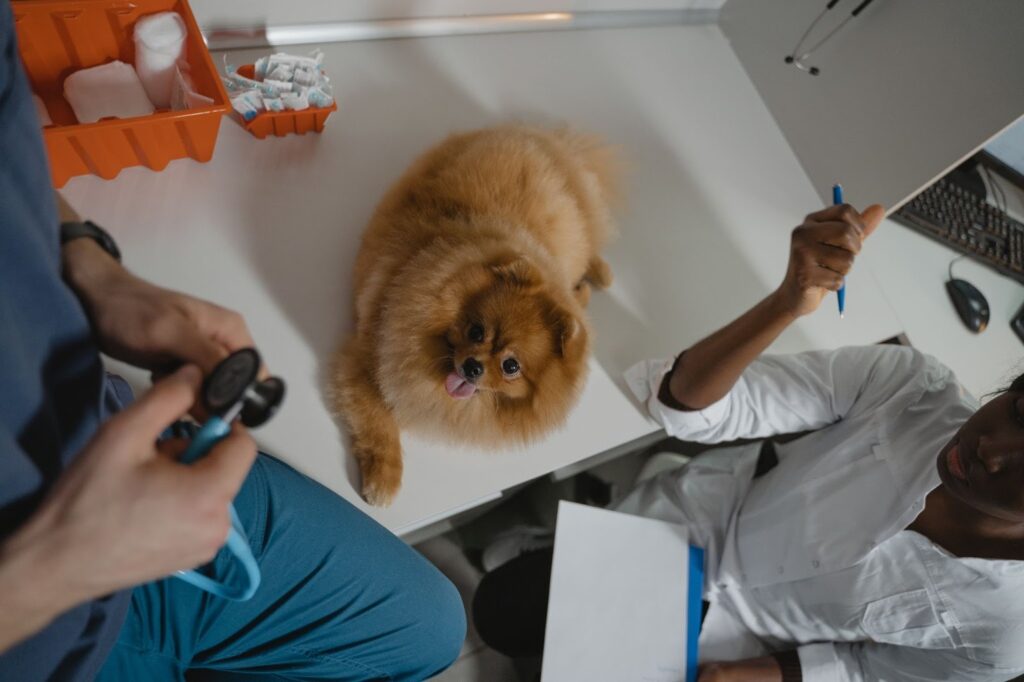For many pet owners, a visit to the vet can be a stressful ordeal – often filled with anxious pets, unfamiliar smells, and unexpected bills. However, regular vet check-ups are essential for maintaining your pet’s health and catching potential issues before they become severe.
In this article, we’ll explain why it’s important to have regular vet visits and also what you need to look out for.
Contents
Understanding Preventative Care
Just as humans have annual physicals to ensure optimal health, our pets benefit from similar consistent check-ups. Preventative care can often mean the difference between catching an issue early or dealing with more severe health problems down the road.

Key Benefits of Regular Vet Visits
- Early Detection of Diseases: Conditions like diabetes, heartworm, or cancer can be more effectively managed or treated if caught early.
- Vaccinations: Keeping your pet’s vaccinations up to date is crucial in preventing diseases like rabies, distemper, and parvovirus.
- Dental Health: Dental disease can lead to other severe health issues if left unchecked. Regular cleanings can prevent these problems and ensure your pet maintains healthy teeth and gums.
- Dietary Recommendations: As your pet ages or if they have specific health issues, their dietary needs can change. A vet can guide you on the best food choices for your pet.
- Parasite Prevention: Fleas, ticks, and worms can cause a variety of health issues. Regular check-ups ensure your pet is protected from these pests.
Breed-Specific Health Checks: What Pet Owners Need to Monitor
Every dog breed has its unique charm, history, and genetic makeup. As a result, certain breeds are more susceptible to specific health issues due to their genetics, build, or hereditary conditions.
Understanding these breed-specific susceptibilities can guide pet owners to provide the best possible care for their beloved companions.
Here are some popular breeds and the particular health checks they may require:
1. Cavoodle (Cavalier King Charles Spaniel x Poodle)
- Heart Health: As earlier mentioned, the Cavalier King Charles Spaniel often faces heart issues, particularly mitral valve disease. Regular heart check-ups can detect early signs and provide management solutions.
- Eye Examinations: Poodles can sometimes inherit Progressive Retinal Atrophy (PRA), an eye condition leading to blindness. Regular eye examinations can detect early signs.
- Hip Evaluation: Both parent breeds can sometimes be susceptible to hip dysplasia. Regular hip evaluations can help detect and manage this condition.
2. Labrador Retriever
- Hip and Elbow Evaluation: Labradors are prone to both hip and elbow dysplasia. Regular X-rays and physical evaluations can help in early detection.
- Eye Examinations: They are also susceptible to various eye conditions like cataracts. Regular eye checks are essential.
- Exercise-induced Collapse (EIC): Some Labradors have a genetic predisposition to collapse after intense exercise. Vets can perform a genetic test to see if a dog has this condition.
3. German Shepherds
- Hip Evaluation: German Shepherds are famously known for their susceptibility to hip dysplasia due to their large size and build.
- Degenerative Myelopathy: This is a progressive spinal cord disease in older dogs. Regular neurological check-ups can help in early detection and management.
4. Dachshund
- Spinal Checks: Due to their elongated build, Dachshunds are prone to intervertebral disc disease (IVDD). Regular spinal checks and being vigilant for signs of back pain are essential.
- Eye Examinations: They can be prone to certain hereditary eye diseases.
5. Brachycephalic Breeds (e.g., Bulldogs, Pugs, Shih Tzus)
- Respiratory Monitoring: These breeds have shortened noses, making them prone to Brachycephalic Obstructive Airway Syndrome (BOAS). Regular respiratory check-ups are essential.
- Eye Examinations: Their protruding eyes make them susceptible to various eye conditions, including dry eye.
Easing the Stress of Vet Visits
It’s not uncommon for pets (and their owners!) to feel anxiety about vet visits. Here are some ways to make the experience more comfortable:
- Regular Handling: Make sure you frequently handle your pet, touching their paws, ears, and mouth. This helps them get used to the kind of handling they might experience during a vet check-up.
- Positive Association: Give your pet treats and praise both before and after the visit. Over time, they’ll start to associate the vet with positive experiences.
- Stay Calm: Animals can pick up on their owner’s emotions. Stay calm and positive, reassuring your pet that they’re safe.
- Choose the Right Vet: Not all vet clinics are the same. Some may have specific ways of handling pets or particular expertise with certain breeds. It’s essential to find a vet that both you and your pet feel comfortable with.
To Sum it Up
Regular vet check-ups are an integral part of pet ownership. They ensure that your beloved animal remains healthy, catching potential issues before they escalate into significant health concerns.
Whether you own a robust breed like the Cavoodle or an injury prone one like the Dachshund, making that annual (or bi-annual) vet appointment should always be a priority.
By valuing these check-ups, you’re not only ensuring a longer, healthier life for your pet but also avoiding potentially high medical costs down the road. It’s a small price to pay for the peace of mind that comes from knowing you’re doing everything you can for your animal companion.
